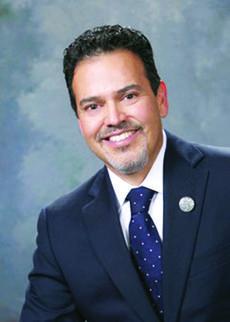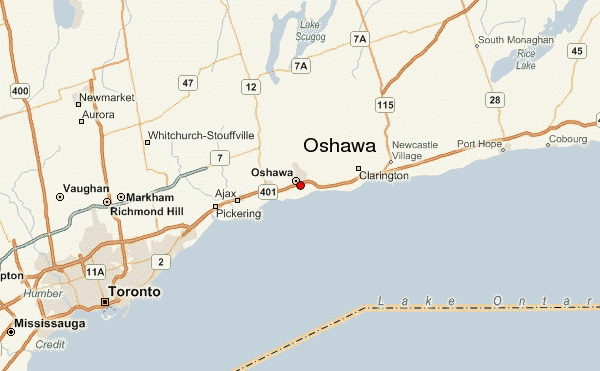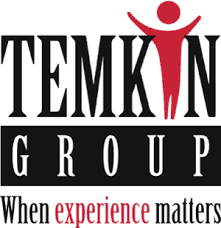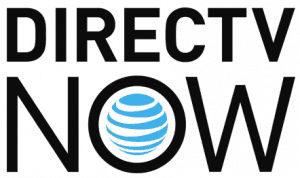
Rep. Trujillo — a friend of CenturyLink
Rep. Carl Trujillo (D-Santa Fe), a New Mexico legislator embroiled in a hotly contested primary for New Mexico’s state legislature, is accused of violating the state’s campaign finance laws by concealing contributions from companies including CenturyLink, the single biggest contributor to his campaign during his last race in 2016.
Denie Cordova of Alcade filed a formal complaint with the New Mexico Secretary of State on Monday.
“Mr. Trujillo failed to disclose thousands of dollars on his campaign finance reports from donors related to CenturyLink and the oil and gas industry, which is against the law,” Cordova said. “Because his failure to disclose these contributions relate to these two industries solely, I believe his failure to disclose was willful.”
Cordova tracked where Trujillo’s campaign funds originated and discovered CenturyLink, along with several companies in the oil and gas industry, may be secretly funneling campaign money to Trujillo with the help of Rep. Patricio Ruilobo, a fellow Democrat who has contributed thousands of dollars to Cordova’s campaign.
“Unopposed again this year, Mr. Ruilobo has suddenly raised over $17,000, or a third of the amount he has raised since being initially elected,” Cordova wrote. “Mr. Ruilobo has received numerous contributions from businesses who have never donated to his campaign, but are contributors to Mr. Trujillo, such as Occidental Petroleum ($2,500), Chevron ($1,000); and Encana ($1,000). Did Mr. Trujillo funnel contributions from oil and gas through Mr. Ruilobo’s campaign account? These ‘pass-through’ contributions are illegal in the state of New Mexico.”
The complaint also alleges CenturyLink’s lobbyist, Johnny Montoya, gave Trujillo free baseball tickets that were never reported on disclosure forms. But in a more serious allegation, Cordova claims both CenturyLink and Trujillo violated New Mexico law by accepting money from the telecommunications company above the corporate limit.
Trujillo’s defense of CenturyLink’s contributions also raised eyebrows.
“One campaign contribution came from a telecommunications PAC [affiliated with CenturyLink], the other came from a telecommunications [company – CenturyTel], therefore, there is no violation,” Trujillo said. “She is claiming that they are from the same company, ($500 from CenturyLink, $2,500 from CenturyLink lobbyist Katherine Martinez) and that is completely untrue.”
 CenturyTel is the old corporate name for what is now known as CenturyLink. Although the two entities still exist for business and regulatory reasons, they are both essentially the same company. Corporations often skirt campaign contribution laws by making multiple donations as an individual company, through an affiliated Political Action Committee (PAC), and through personal contributions from corporate executives and occasionally employees. While each distinct contribution is reported individually on disclosure forms, politicians do the math and understand where the combined contributions are coming from.
CenturyTel is the old corporate name for what is now known as CenturyLink. Although the two entities still exist for business and regulatory reasons, they are both essentially the same company. Corporations often skirt campaign contribution laws by making multiple donations as an individual company, through an affiliated Political Action Committee (PAC), and through personal contributions from corporate executives and occasionally employees. While each distinct contribution is reported individually on disclosure forms, politicians do the math and understand where the combined contributions are coming from.
As for the baseball tickets, Trujillo waived them off.
“That is not a campaign contribution, there is no place to amend my report, it’s all within the limits of the Campaign Finance Act, so there’s no violation there,” he told the Los Alamos Monitor.
Trujillo has been criticized by some in his district, which covers a largely rural area from Santa Fe to the northern half of the county, for being too corporate friendly, a charge Trujillo strongly disputes.

Montoya
“I am probably the number one representative or senator in the state that receives the vast majority, 90 percent of my contributions, from grassroots organizations, individuals and small businesses,” he told the newspaper. “I raised a lot of money from many small businesses and individuals within the district. Those characteristics of my campaign funding are completely untrue.”
But at least some of Cordova’s charges seem to be accurate, particularly regarding large donations from energy companies like Encana Gas and Oil, which Trujillo had to send back.
“I sent many contributions back throughout my tenure as a legislator. I have probably sent 30 to 40 contributions back,” Trujillo said. When asked why he has had to return so many corporate contributions, Trujillo answered, “Because of what we’re dealing with now. Campaigns that have nothing to grab onto make desperate attempts to make somebody look bad. People refuse to run for office because of tactics like this.”
Trujillo also turned the spotlight back on Cordova and her complaint, which he called “suspicious,” noting it was a very detailed add filed by someone who lives outside his district. A Facebook page for Ms. Cordova reveals no political leanings or obvious interest in politics.
 His opponent in the primary, Andrea Romero, has herself been the subject of some controversy. In February, a complaint filed by Northern New Mexico Protects claimed Romero spent over $1,850 on a single dinner, not including $307 for alcohol and baseball tickets, during a lobbying trip to Washington, D.C. Romero is also under investigation in her role as former executive director of the Regional Coalition of LANL Communities — a group of towns that have banded together to deal with issues surrounding the Los Alamos National Laboratory. New Mexico’s state auditor is currently auditing the books of the coalition over financial irregularities relating to travel expenses.
His opponent in the primary, Andrea Romero, has herself been the subject of some controversy. In February, a complaint filed by Northern New Mexico Protects claimed Romero spent over $1,850 on a single dinner, not including $307 for alcohol and baseball tickets, during a lobbying trip to Washington, D.C. Romero is also under investigation in her role as former executive director of the Regional Coalition of LANL Communities — a group of towns that have banded together to deal with issues surrounding the Los Alamos National Laboratory. New Mexico’s state auditor is currently auditing the books of the coalition over financial irregularities relating to travel expenses.
Romero accused her complainant of having political connections to Trujillo and claimed the entire affair was politically motivated. Trujillo claims essentially the same, but has not directly accused Romero by name.
The larger issue for ethics in government observers is the money laundering of political campaign contributions to skirt campaign finance laws. The fact that many of Trujillo’s donors suddenly began making contributions to an Albuquerque legislator that has faced no significant opposition and has raised very little money in the past was intriguing. When that money turned into a legislator to legislator campaign contribution from Ruilobo to Trujillo, it looked suspicious.
Campaign finance reform advocates call it a shell game and a way to undermine campaign finance limits. But they admit in New Mexico it is both legal and common.
 Bell today announced it will spend $100 million dollars to expand its all-fiber network to 60,000 homes and businesses in Oshawa, Ont.
Bell today announced it will spend $100 million dollars to expand its all-fiber network to 60,000 homes and businesses in Oshawa, Ont. Bell’s network is currently capable of delivering up to 40 Gbps broadband speed, and is infinitely upgradable to even faster speeds in the future. Residents will be able to subscribe to the new service beginning this fall. New customers will pay $79.95 a month for gigabit speeds for the first year, $149.95 a month after that. A $59.95 installation fee also applies.
Bell’s network is currently capable of delivering up to 40 Gbps broadband speed, and is infinitely upgradable to even faster speeds in the future. Residents will be able to subscribe to the new service beginning this fall. New customers will pay $79.95 a month for gigabit speeds for the first year, $149.95 a month after that. A $59.95 installation fee also applies.

 Subscribe
Subscribe Charter Communications’ takeover of Time Warner Cable and Bright House Networks has not proved popular, according to a new survey from Temkin Group.
Charter Communications’ takeover of Time Warner Cable and Bright House Networks has not proved popular, according to a new survey from Temkin Group. This marks the eighth year Temkin has published its Temkin Experience Ratings, generated from compiling the results of a survey of 10,000 U.S. consumers about their recent interactions with 318 significant U.S. companies. Temkin measures three dimensions of a customer’s experience:
This marks the eighth year Temkin has published its Temkin Experience Ratings, generated from compiling the results of a survey of 10,000 U.S. consumers about their recent interactions with 318 significant U.S. companies. Temkin measures three dimensions of a customer’s experience:
 Golisano’s Grand Oaks LLC of Pittsford, N.Y. promises customers the acquisition will not result in any changes in Greenlight’s rates or its terms and conditions.
Golisano’s Grand Oaks LLC of Pittsford, N.Y. promises customers the acquisition will not result in any changes in Greenlight’s rates or its terms and conditions. AT&T CEO Randall Stephenson today announced AT&T would offer a slim-sized version of DirecTV Now offering a significant number of cable networks and live local television stations, but without expensive sports programming.
AT&T CEO Randall Stephenson today announced AT&T would offer a slim-sized version of DirecTV Now offering a significant number of cable networks and live local television stations, but without expensive sports programming.
 CenturyTel is the old corporate name for what is now known as CenturyLink. Although the two entities still exist for business and regulatory reasons, they are both essentially the same company. Corporations often skirt campaign contribution laws by making multiple donations as an individual company, through an affiliated Political Action Committee (PAC), and through personal contributions from corporate executives and occasionally employees. While each distinct contribution is reported individually on disclosure forms, politicians do the math and understand where the combined contributions are coming from.
CenturyTel is the old corporate name for what is now known as CenturyLink. Although the two entities still exist for business and regulatory reasons, they are both essentially the same company. Corporations often skirt campaign contribution laws by making multiple donations as an individual company, through an affiliated Political Action Committee (PAC), and through personal contributions from corporate executives and occasionally employees. While each distinct contribution is reported individually on disclosure forms, politicians do the math and understand where the combined contributions are coming from.
 His opponent in the primary, Andrea Romero, has herself been the subject of some controversy. In February, a complaint filed by Northern New Mexico Protects claimed Romero spent over $1,850 on a single dinner, not including $307 for alcohol and baseball tickets, during a lobbying trip to Washington, D.C. Romero is also under investigation in her role as former executive director of the Regional Coalition of LANL Communities — a group of towns that have banded together to deal with issues surrounding the Los Alamos National Laboratory. New Mexico’s state auditor is currently auditing the books of the coalition over financial irregularities relating to travel expenses.
His opponent in the primary, Andrea Romero, has herself been the subject of some controversy. In February, a complaint filed by Northern New Mexico Protects claimed Romero spent over $1,850 on a single dinner, not including $307 for alcohol and baseball tickets, during a lobbying trip to Washington, D.C. Romero is also under investigation in her role as former executive director of the Regional Coalition of LANL Communities — a group of towns that have banded together to deal with issues surrounding the Los Alamos National Laboratory. New Mexico’s state auditor is currently auditing the books of the coalition over financial irregularities relating to travel expenses.